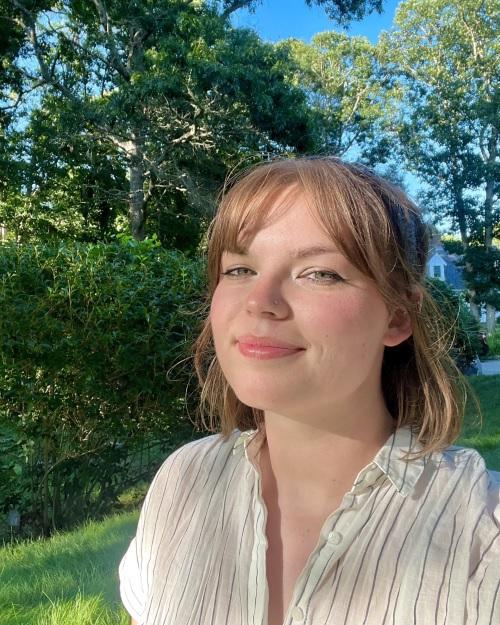-
About
- Leadership & Faculty
- News & Events
-
Academics
- Graduate
- Advanced Clinical Training
- Continuing Education
-
Student Life
-
Research
-
Hospitals & Clinics
- Emergency Care
- Hospital Services
-
Community Outreach
- Volunteer
Biography
Massachusetts
Psychology
University of New Hampshire, 2019
Why did you choose to pursue this degree, and why did you choose Cummings School of Veterinary Medicine to pursue this degree?
Tufts University has always been known to me as a university with exceptional clinical programs. I have always had a passion for working outdoors and with animals, and the opportunities to work with wildlife in a clinical aspect at Cummings School of Veterinary Medicine at Tufts University was one of the main draws to the program for me. The mix of clinical and experimental approaches within the MCM program makes me excited for the potential career opportunities after graduation. I have never considered myself a traditional student, and the interdisciplinary nature of the One Health approach aligns with my values both as a student and as a future contributor to the conservation field. It takes many perspectives to reach effective solutions in this field, and the MCM program is built to produce both practiced scientists and real-world problem solvers.
What are your interests and/or experience relative to your program?
I completed my undergraduate research project in a neuroscience lab, studying the effects of stress on health outcomes like development of mood disorders and physical changes in brain structures. I am really interested in further understanding resilience and how individuals differ in their responses to chronic stress. My interests now are more aligned with marine mammal research, and my goal is to study the effects of anthropogenic factors on large cetacean stress levels and health outcomes. This summer, I completed a marine mammal stranding internship with IFAW on Cape Cod, and it opened my eyes to the many roles humans have in impacting our marine wildlife. I am interested in further developing my laboratory and research skills in order to really understand the science behind human-caused stress and the negative health outcomes associated with chronic stress.
What are your career goals after completing the program?
My goal is to provide valuable research that informs policy making to further the conservation efforts of endangered keystone species; I have a particular interest in working with large whales, but I would be happy working with terrestrial wildlife as well. I strongly believe in the power of making scientific information accessible to all, so in tandem with research, I hope to find a platform that helps build capacity for science communication, with the goal of inspiring a public interest in protecting our wildlife and ecosystems. I am eager to use the resources available at Cummings School to explore my interest in veterinary care, and I hope to gain more clinical skills to aid in caring for sick or injured wildlife.
